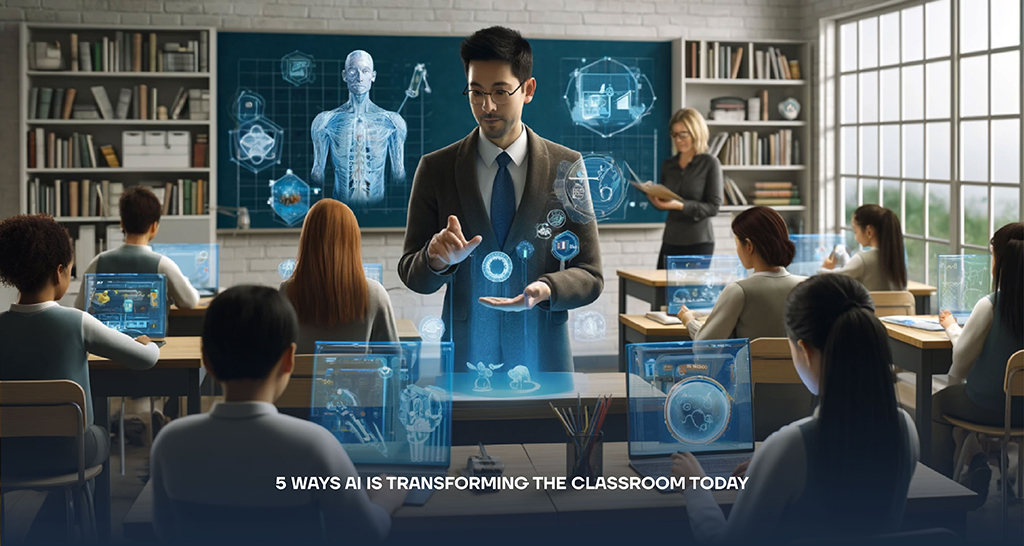Artificial Intelligence (AI) has evolved beyond a mere buzzword in the technology sector; it is now fundamentally altering the dynamics of student learning and educator instruction. Across classrooms worldwide, AI is emerging as a vital resource for developing more tailored, effective, and captivating educational experiences. Below are five significant ways in which AI is currently transforming the classroom environment:
- Personalized Learning Paths
AI-driven platforms have the capability to assess student performance instantaneously, pinpointing individual strengths, weaknesses, and learning styles. This enables educators to provide customized lessons that cater to the specific requirements of each student. For instance, adaptive learning technologies can modify the complexity of questions according to a student’s performance level, ensuring that they remain engaged without feeling either bored or overwhelmed.
- Intelligent Tutoring Systems
AI-powered tutoring systems, including chatbots and virtual tutors, are accessible around the clock to assist students beyond regular class hours. These systems can address inquiries, clarifying concepts through various explanations, and offering supplementary practice, thereby enhancing the accessibility and continuity of learning. This is especially beneficial for students who lack access to private tutoring or additional support at home.
- Automated Grading and Feedback
Grading can often require a significant amount of time; however, artificial intelligence can enhance efficiency by automatically assessing assignments, particularly those involving multiple-choice and short-answer formats. Furthermore, more sophisticated AI systems can evaluate essays and offer constructive feedback. This advancement allows educators to dedicate more time to teaching and fostering student engagement.
- Enhanced Classroom Engagement
AI technologies, such as gamified learning applications and virtual reality (VR) experiences, enhance the interactivity and appeal of educational lessons. These resources not only increase student engagement but also aid in the comprehension of intricate subjects by providing visual and practical experiences. Additionally, voice assistants can be utilized to promote discussions and collaborative activities among students.
- Predictive Analytics for Student Success
Artificial intelligence can assist educators in recognizing students who may be at risk of lagging behind by examining trends in attendance, engagement, and academic performance. By leveraging these insights, educational institutions can implement timely interventions with focused support, thereby enhancing student retention and success rates.
The integration of AI in education is an ongoing process, yet its influence is already significant. By enhancing the personalization, interactivity, and data-driven nature of learning, AI is not only assisting educators but also transforming the possibilities within the classroom. As technological advancements continue, the capacity for AI to further enhance educational experiences will only increase.
